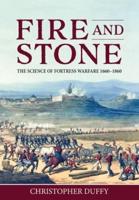Publisher's Synopsis
Excerpt from Soldiers of Fortune in Camp Court
The sword has always been the resource Of the adventurous or impecunious, and the roll of celebrated soldiers of fortune is so long that the choice may be much a matter of fancy or predilection. But there were epochs when the trade was exceptionally ?ourishing, there were times when men were typical or when circumstances forced them to the front, as there were illustrious careers sensationally dramatic. SO there is justification for a selection not altogether arbi trary. One naturally begins with the mediaeval Condottieri and as naturally ends with the Indian Adventurers, their modern representatives. The war which for thirty years desolated Europe saw the developments of a science then in its infancy, with a revolution in the methods of cam paigning. Our countrymen, and especially the Scots, had a special interest in that war from the numbers who ?ocked to the standards of the Lion of the North, the Catholic League, or the Empire. Of the many Scottish soldiers of fortune, Marshal Keith of the next century was by far the greatest. All are familiar with him as one Of Frederick's most trusted lieutenants, but less is known of his concern in the Jacobite intrigues, and as little of the vicissitudes of his life in Russian camps and courts, where, after rising to the highest rank, his Scottish caution saved him from the scaffold or Siberia. Eugene, born with the very genius.
About the Publisher
Forgotten Books publishes hundreds of thousands of rare and classic books. Find more at www.forgottenbooks.com
This book is a reproduction of an important historical work. Forgotten Books uses state-of-the-art technology to digitally reconstruct the work, preserving the original format whilst repairing imperfections present in the aged copy. In rare cases, an imperfection in the original, such as a blemish or missing page, may be replicated in our edition. We do, however, repair the vast majority of imperfections successfully; any imperfections that remain are intentionally left to preserve the state of such historical works.










